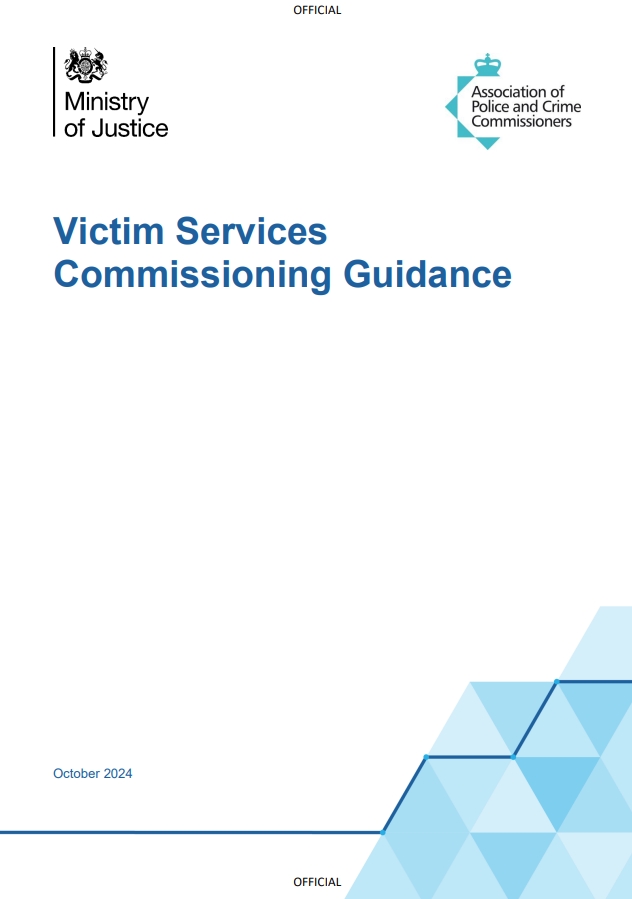Victim services commissioning guidance
The Victim Services Commissioning Guidance provides a framework for commissioners, primarily Police and Crime Commissioners (PCCs), to commission victim support services effectively. It aligns with the Victims Funding Strategy (VFS) and reflects national standards while allowing for local flexibility.
Summary
The Victim Services Commissioning Guidance, co-authored by the Ministry of Justice and the APCC, aims to enable local commissioners to achieve national commissioning standards. It includes specific information on collaboration and co-commissioning, support for child victims and those from marginalised groups, and examples of best practice and advice to support sound decision-making.
The guidance is aimed at PCCs, however commissioners of victim-specific support services such as Local Authorities and Integrated Care Boards are encouraged to take account of this guidance when they commission support for victims. For example, supporting victims within safe accommodation, and Sexual Assault Referral Centres (SARCs).
Key Objectives:
- Focus on services for children, young people, and marginalized groups.
- Ensure victims can access tailored, timely support.
- Promote collaboration among local agencies.
Methodology
- The review engaged with all 43 police force areas in England and Wales.
- Surveys and qualitative feedback were gathered from OPCCs, third-sector organizations, and government departments.
- Data collection involved direct engagement, face-to-face meetings, and regional discussions.
Commissioning Process
The guidance follows a 4-stage commissioning cycle:
Review: Monitor outcomes, evaluate effectiveness, and decommission if needed.
Understand: Conduct needs assessments, engage victims and communities, and identify service gaps.
Plan: Develop strategies, identify providers, and conduct due diligence.
Do: Implement services through contracts, grants, or co-commissioning.
